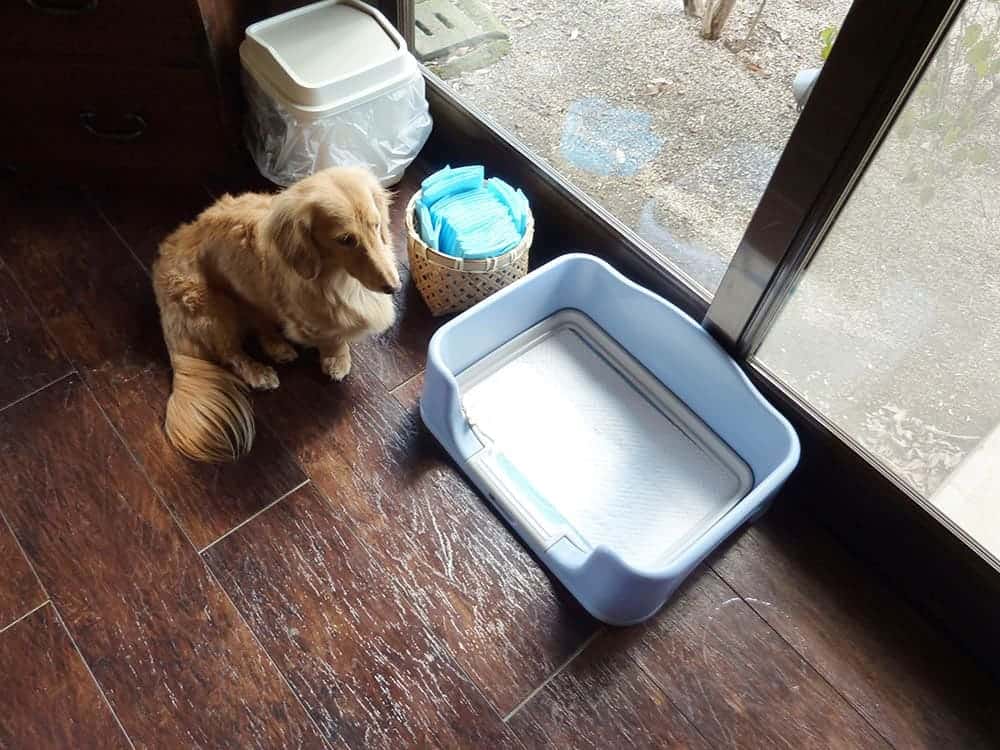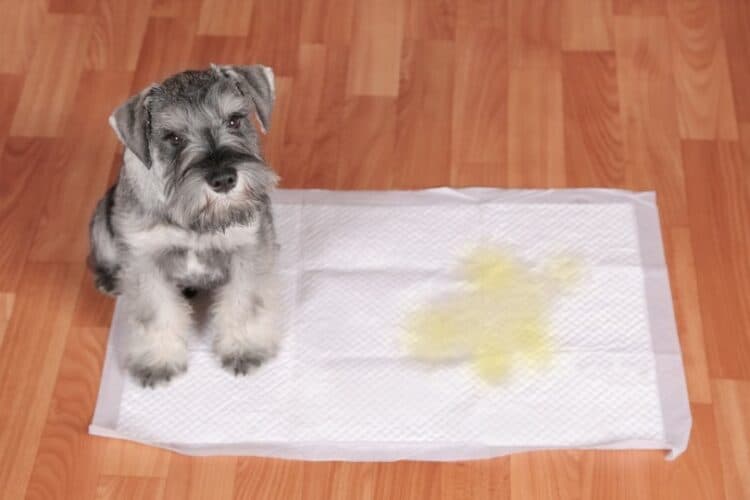Puppies are a joy to bring home. They are so playful, cute, cuddly, and affectionate that it’s hard to tear ourselves away from them so we can get to work, go to the store, and do chores. However, puppies are not all fun and games. They like to tear things up, get rowdy, and use the bathroom wherever they feel like it. Therefore, potty training is typically a serious focus for new dog owners.
But how long should it take to potty train a dog? It depends on the dog, the training tactics used, and the age when the training is taking place. On average, it can take between 4 and 6 months for your pup to become fully potty trained. It can take less or more time, depending on things like the dog’s temperament and the training techniques that are practiced.
The Process of Potty Training a Dog
Getting your dog potty trained can seem stressful at times. Practice, patience, and understanding are all necessary during the process. If you stick to it and don’t give up, you’ll be rewarded with a clean house and a manageable potty routine that can be easily maintained throughout your pet’s life. The process usually involves:
- Establishing a Routine — It’s important to set up a potty routine for your pooch so they know what to expect throughout the day. Puppies respond well to routines and will learn to hold their potty until their designated potty time — once they learn what that potty time is.
- Potty Spots — You should designate certain spaces outside for potty breaks so your pooch knows where they should or should not relieve themselves. Picking a couple of specific spots outside will help make your pooch feel safe when using the bathroom.
- Encouragement and Rewards — Potty training is usually not successful if encouragement and rewards aren’t part of the plan. Always use encouraging tones and words when it’s time to go outside and use the bathroom. When your pup does go potty when and where they should, a treat, a big rub on the belly, or another type of reward should be offered.
- A Regular Food and Water Schedule — If you expect your pooch to be regular when it comes to relieving themselves, you must create a regular schedule for food and water. Never feed your dog close to bedtime, as it may result in the need to poop in the middle of the night. The water bowl should be picked up a couple of hours before bedtime to eliminate nighttime accidents.
You can work with a trainer, get advice from your veterinarian, head to the library to consult training books, or utilize potty-training how-to videos if you aren’t confident in your current potty-training skills. There are many resources out there to tap into!

Expect Setbacks
Every dog owner should expect a few setbacks when it comes to potty training. This is especially true for those who are potty training older dogs. The best time to train is during puppyhood, but this is not always possible. Either way, your pooch is sure to have accidents and make mistakes throughout the training process.
Sometimes, dogs go through what is referred to as potty-training regression. During this time, your dog may act as if they’ve never done any training and don’t understand when or where to use the bathroom. The cause could be something as simple as carelessness or a lack of access to bathroom breaks or something as serious as an infection in the urinary or gastrointestinal tract.
The first thing to do if you experience potty training setbacks is to make sure there are no underlying health problems present by scheduling a checkup appointment with a trusted veterinarian. If your pooch gets a clean bill of health, it’s just a matter of being consistent, patient, and encouraging while you continue your training efforts.
In Conclusion
Potty training a dog takes time and patience, but once the training is established, you shouldn’t have problems with accidents in the house or at places where you’d rather them not relieve themselves. It’s important to keep in mind that training practices should be maintained throughout your dog’s life to ensure your happiness and your dog’s good health. Encouragement and even occasional rewards should be a permanent part of the potty management process.
Featured Image Credit: Shutterstock














